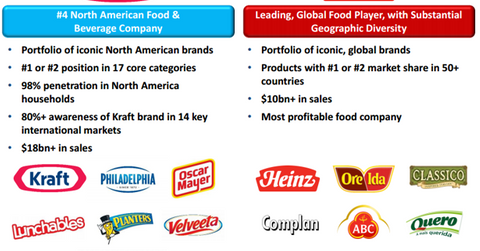Is Antitrust an Issue in the Kraft–Heinz Merger?
The first place arbitrageurs look to get a handle on antitrust risk is the 10-K, where companies often disclose the names of competitors.
April 9 2015, Updated 1:50 p.m. ET

Regulatory approvals determine when the deal will close
For almost all mergers, the rate of return is driven by the time it takes to close the deal. There are two basic types of deals:
- cash tenders, which have a shortened time frame
- mergers, which take longer
The Kraft–Heinz merger requires a shareholder vote. It will have a longer timeline. Berkshire Hathaway (BRK-B) and 3G are serial acquirers, so they’re pretty familiar with what it takes to get a proxy through the SEC (U.S. Securities and Exchange Commission).
Antitrust
The first place arbitrageurs look to get a handle on antitrust risk is the 10-K, where companies often disclose the names of competitors. In neither Heinz’s nor Kraft’s (KRFT) 10-K filings does one company name the other as a competitor.
In its filing, Kraft says, “We face competition in all aspects of our business. Competitors include large national and international companies and numerous local and regional companies. We also compete with generic products and retailer brands, wholesalers, and cooperatives.”
For its part, Heinz says, “The products of the Company are sold under highly competitive conditions, with many large and small competitors. The Company regards its principal competition to be other manufacturers of prepared foods, including branded retail products, foodservice products and private label products, that compete with the Company for consumer preference, distribution, shelf space and merchandising support.”
It’s unlikely that the merger will generate much antitrust scrutiny, as the two companies are complementary. Kraft is largely in food products, and Heinz is largely in condiments. Both companies have a line of pickles, so the antitrust regulators may force one of them to divest a brand, but overall, the Kraft–Heinz merger doesn’t look problematic from an antitrust standpoint.
Merger arbitrage resources
Other important merger spreads include the deal between Time Warner Cable (TWC) and Comcast (CMCSA) as well as the merger between Pharmacyclics (PCYC) and AbbVie (ABBV). For a primer on risk arbitrage investing, read Merger arbitrage must-knows: A key guide for investors.
Investors who are interested in trading in the consumer discretionary sector should look at the Consumer Staples Select Sector SPDR Fund (XLP) or the iShares Global Consumer Staples ETF (KXI).
